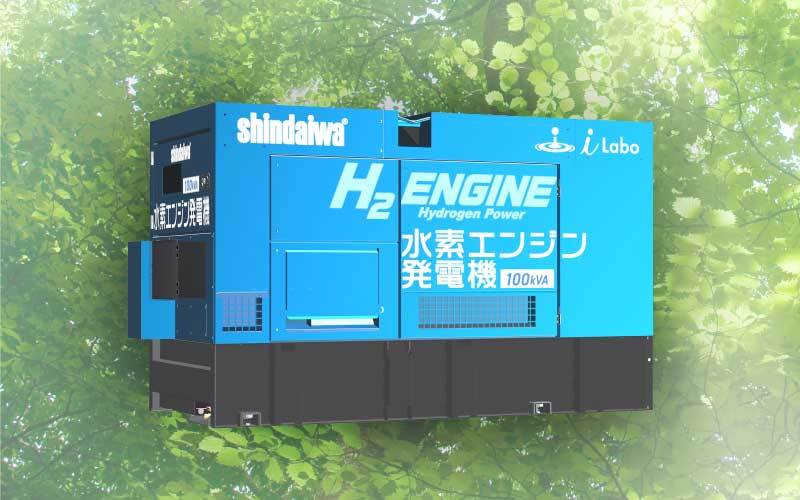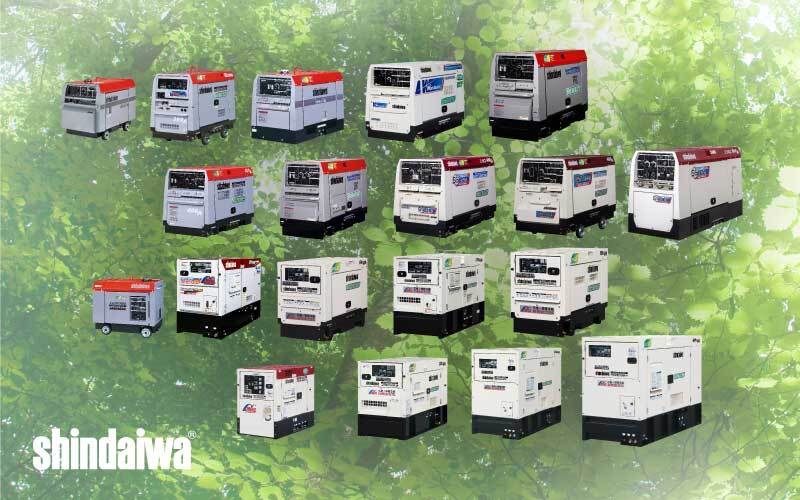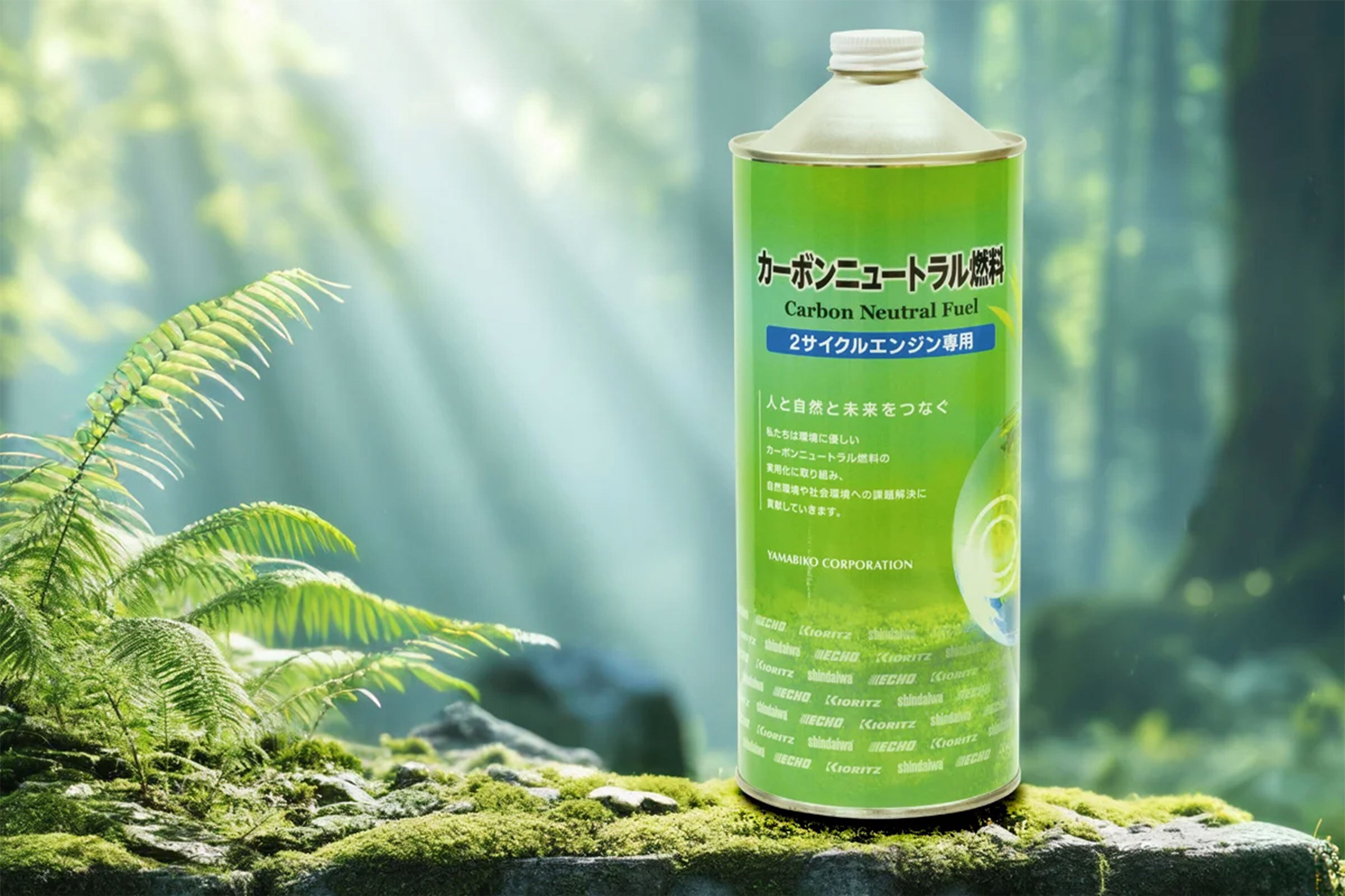- NEWS
- ABOUT YAMABIKO
- PRODUCTS
- IR
- SUSTAINABILITY
- NEWS
- CONTACT US
- Japanese

Low Carbon Fuel
A recycling-oriented society is one that recycles resources by reusing and regenerating them, thereby reducing the burden on the environment. solar energy charged to EVs can be circulated through the discharge function of power conditioners.

Hydrogen Engine Generator
Yamabiko has jointly developed a demonstration hydrogen engine generator with i Labo, which has "hydrogen conversion" technology that enables diesel engines to run on hydrogen fuel.
Based on a Shindaiwa? brand 100kVA generator, this demonstration unit supplied power to about 10 food trucks for 7 hours continuously at the Formula E 2024 Tokyo E-Prix held in Ariake, Koto-ku, Tokyo on March 29-30, 2024.
As the power is generated by burning hydrogen fuel, CO2 emissions are close to zero, and the demonstration is expected to make a significant contribution to achieving carbon neutrality.

Biofuel compatible Welders Generators
Biofuel compatible Welders Generators In order to promote carbon neutrality at construction sites, Yamabiko has conducted verification tests on the specifications of biofuel (Renewable Diesel = RD*) in accordance with the European standard EN15940 on 10 models of welding machines and 9 models of generators equipped with Kubota-made engines.
About RD (Renewable Diesel)
RD is a next-generation biofuel produced from waste cooking oil, waste animal and vegetable oil, and other materials that do not compete with food. It belongs to HVO (Hydrotreated Vegetable Oil) and is already widely used mainly in Europe and the United States. In Japan, Itochu Enex is establishing a series of supply chains for the transportation and refueling of RD fuel in accordance with the European standard EN15940.

Biofuels Carbon neutral for outdoor power equipment
To achieve carbon neutrality, Yamabiko is promoting the electrification of small outdoor power equipment such as chainsaws and brush cutters, but there are areas where electric power is difficult to replace, such as chainsaws used deep in the forest where there is no power source. As a solution, we are considering improving engine efficiency and making the fuel carbon neutral. There are two types of carbon-neutral fuels: synthetic fuels (e-fuels) and biofuels. Yamabiko is focusing on and conducting research on biofuels that are closely related to the agriculture and forestry industries in which OPE products are used.Biofuels include bioethanol and ETG (ethanol to gasoline) produced from bioethanol. The two-stroke engine that powers the Yamabiko OPE is not easily affected by fuels, so we are preparing for social implementation by using a variety of fuels such as E100: a practical test of ethanol-fueled brush cutters, demonstration monitoring using ETG fuel, and use in a logging champion competition.
Use of bioethanol fuel in products for the Japanese market
Products sold in Japan are not compatible with bioethanol-blended fuel (E10), and while there are still issues to be resolved in the distribution of E10, we plan to respond flexibly to future changes in environmental regulations and market needs, and to commercialize products that are compatible with E10 by making full use of technologies that have been proven over more than 10 years of OPE equipment sales in the U.S. and Europe, where E10 has been introduced. We will continue to commercialize the product by making full use of the corresponding technology that has been proven in more than 10 years of OPE equipment sales in the United States and Europe, where E10 has been introduced.
The number after "E10/E100 E" indicates the ratio of ethanol to gasoline (E100 indicates the ratio of ethanol to gasoline). (E100 is ethanol only)

